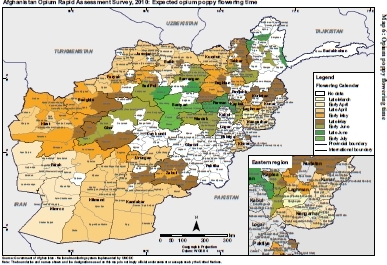Look, up in the sky, it's a bird, it's a plane, it's... Methadone Man? Harm reductionists are pulling out the stops, including calling on caped superheroes, to get their message out to the Olympic crowds in Vancouver as the Games get underway.
In 1913, the El Paso city council became the first in the country to outlaw marijuana. Now, faced with the horrendous prohibition-related violence across the river in Ciudad Juarez, it has passed a resolution condemning current drug policies, but only after dropping language calling for marijuana regulation. It's got three years left until the century mark to get it completely right.
A dope-dealing probation officer, a detective who buddied-up to a dope dealer, and a sticky-fingered small town cop make the roll-call of dishonor this week.
Heads not attached to bodies keep popping up in unexpected places in Mexico. Yet another gruesome reminder of the prohibition-related savagery wracking the country.
People are dying from drug overdoses at the rate of nearly two a day in Washington state. Now, the state Senate has passed a bill that could reduce that toll by encouraging people ODing or their friends to seek medical help.
Republican House members in Missouri convinced their colleagues to pass a bill mandating drug testing for welfare recipients and applicants, but Democrats are filibustering the bill in the Senate.
An effort to get Idaho to join the list of states endorsing the legalization of hemp production died on a tie vote Wednesday. Old myths and misconceptions die hard, and there is more work to do in the Gem State.
Canada's Conservatives don't know when to quit. They've lost twice in a court battle over Vancouver's safe injection site, and now they're trying yet again.
The European death toll from heroin apparently contaminated with anthrax has risen to 11 as England reported its first death Wednesday. There have been nine more in Scotland and one more in Germany, leading to fears the contamination is widespread. The official response is still mainly limited to telling users to stop.
Afghan opium cultivation and production figures this year should be similar to 2009, the UN said in a report this week. That means that Afghanistan is still producing 40% more opium than is needed to supply all the world's junkies.
MedicalMarijuana.ProCon.org, part of the ProCon.org family, is an in-depth web site presenting information and views from a variety of perspectives on the medical marijuana issue. The Chronicle is running a series of info items from ProCon.org over the next several weeks, and we encourage you to check it out.
Events and quotes of note from this week's drug policy events of years past.
"Synthetic 'Legal' Marijuana is Becoming Popular, So They're Trying to Ban It," "Police Put Warning Signs in Front of Drug Houses (Um, Isn't That Free Advertising?)," "Why Do We Even Have a Drug Czar?," "Various Interesting Links," "What's the Point of Asking Obama to Legalize Marijuana? I'll Explain."
Apply for an internship at DRCNet and you could spend a semester fighting the good fight!
The Vancouver Olympic Games are getting underway today, and along with thousands of athletes and an estimated half a million visitors from around the world, the harm reduction community will also be there. A consortium of local, national, and international harm reduction and advocacy groups have crafted a campaign called SafeGames 2010 to bring harm reduction theory and practice to the forefront during the Olympic games.

In addition to bringing harm reduction messages to the Olympic masses, the campaign may help serve as a corrective to the drop-in international media, who come to Vancouver for the Olympics, then look around for local stories to cover, and then discover the city's Downtown Eastside with shock and dismay. The Downtown Eastside is home to one of the largest and densest concentrations of hard drug users in the hemisphere and has the appearance of a Skid Row. But it is also home to the innovative harm reduction and other drug policies that have put Vancouver on the cutting edge of drug reform.
Led by Vancouver's Keeping the Door Open Society, SafeGames 2010 will provide an array of resources, including tips on safe sex and reducing the harm associated with drug and alcohol consumption, in a bid to keep the Olympic community safe and protected. The campaign has the added benefit of highlighted Vancouver's progressive stance on drug policy and harm reduction.
"Vancouver is a community that respects its citizens for who they are," said Gillian Maxwell, head of Keeping the Door Open and project director for the SafeGames 2010 project. "Over the last decade, Vancouver has paved the way for some of its most marginalized community members, including people who use drugs, are in the sex trade, are living with HIV/AIDS, and those with mental health issues and other concerns, to be treated with respect and dignity."
The campaign kicked off Wednesday with a press conference featuring Maxwell, several Vancouver and British Columbia officials, and a trio of caped and costumed superheroes: Methadone Man, Buprenorphine Babe, and Captain Condom. The superheroes will be among the 200 volunteers handing out 20,000 "safe kits" containing condoms, lube, hand heaters, glow sticks, and DVDs, as well as information about the sex trade in the city and referrals to local service providers to people attending Olympic events and visiting the city's sure-to-be bustling night life districts.
The campaign's web site also provides a range of local resources and contacts to connect visitors with harm reduction services available in the area, such as the city's InSite safe injection site, the only one in North America. The web site also provides informational videos and handouts, as well as information on various SafeGames members.
Vancouver Police Inspector Scott Thompson told the press conference that while Vancouver police don't support drug use, they do support SafeGames 2010. "Unfortunately, people are going to engage in activities like this. And the goal would be that when they do that, we want them to be safe when they do it."
This isn't the first time harm reductionists have worked the Olympics. During the 2002 Olympics in Salt Lake City, harm reductionists led by SafeGames campaign founder Luciano Colonna undertook a similar program there. But the campaign is only getting better, said Colonna.
"Our partners -- from HIM, which works to strengthen the health of gay men, to the SafeVibe campaign of Women Against Violence Against Women, to InSite, have been working overtime to respond to the harm reduction needs of those coming here for the games," he said.
"This is harm reduction for the mainstream," said Maxwell. "We will be outreach workers, going out in teams to bar and party areas and handing out the safe kits. There are a whole range of things that people do that can be risky, and we say do it safely. What I like most about the campaign is that we are explaining harm reduction in many different ways, and you can't really argue with any of them. We are going to be getting out some very good public health messages," Maxwell said.
SafeGames isn't the only one doing some harm reduction work for the Vancouver Olympics. The city of Vancouver has announced it will hand out 100,000 condoms on its own.
For Maxwell, SafeGames is not just about harm reduction at the Games. It's also about educating people about the Downtown Eastside and what goes on there. "Every city has that sort of thing," she said, "but ours is very open and big, with thousands of people. It could be hard to take if you're from a different culture, but we're thinking it's a great opportunity to educate people. We're even talking about doing some tours of the Downtown Eastside."
As the countdown to the Olympics draws to end, Maxwell could feel the excitement building. "A lot of people were against spending the money it costs to have the Olympics here, and I'm not really into it myself, but there is a real buzz on downtown now," she said. "There are all these young athletes, and this is their dream, and here they are. You can't help but notice the vibe."
And maybe, thanks to SafeGames 2010, some of those athletes and the crowds who come to cheer them on won't be able to help but notice the harm reduction messages and messengers circulating among them.
back to top
A year ago, dismayed at the violence rocking its sister city of Ciudad Juárez just across the Rio Grande River, the city council in the remote Texas border city of El Paso unanimously passed a resolution calling for serious consideration of ending drug prohibition, only to see it vetoed by Mayor John Cook. Then, after heavy-handed warnings from US Rep. Silvestre Reyes (D-TX) and the city's delegation in the state legislature that such a resolution could threaten the city's funding, the city council backed down, failing to override Cook's veto.
With those votes and the controversy surrounding them, El Paso was thrust into -- and helped ignite -- a national debate on the country's drug policies. This week, the El Paso city council returned to the issue when, led by Councilmembers Beto O'Rourke and Steve Ortega, it considered a resolution calling for a "comprehensive examination of our country's failed War on Drugs," and advocating for "the repeal of ineffective marijuana laws" and their replacement with taxed, regulated, and controlled marijuana production, sales, and consumption for adults.
The resolution also called for an immediate meeting between Mexican President Felipe Calderon and US President Obama to address prohibition-related violence in Mexico, rejected the "militaristic" approach of Plan Merida, the three-year, $1.4 billion anti-drug assistance scheme for Mexico and Central America, called for that aid to be tied to strict human rights reporting requirements, and called for any additional aid to Mexico to be aimed at improving the country's "social, educational, and economic development."
"It's up to us to act and make some tough decisions and do some uncomfortable things," said O'Rourke, as he urged his colleagues to support the resolution.
"The fuel to the fire in Juárez is the profits of a black market," said Councilwoman Susie Byrd, explaining why she supported the marijuana regulation language.
But not all the council members were in accord. "We didn't talk about demand reduction. We didn't talk about prevention, and we didn't talk about treatment," said Councilman Carl Robinson, explaining his vote against the resolution.
The public also joined in the debate, with University of Texas-El Paso political science professor Tony Payan refreshing the council's member about the city's historic role in marijuana prohibition. "It was the first city council a hundred years ago that passed the first resolution forbidding the use of marijuana," he said. "One hundred years later we've come full circle, and now we're debating 100 years of a failed policy."
"We've got this war that's cost us billions of dollars in Iraq and there's a huge problem next, right next door!" said El Paso resident Eric Contreras.
"It is time to change the laws because drug prohibition is a failed policy," said El Paso resident Richard Newton, a retired veteran US Customs agent and member of Law Enforcement Against Prohibition (LEAP). "The bottom line is that the reason you have cartels in Juárez fighting each other is to sell drugs in the United States. They sell drugs because they can make money. Get rid of the money and you get rid of the cartels."
Not everyone was on board, however. "Quit calling it our sister city. No one wants a disease-riddled prostitute as a sister," said El Paso resident Armando Cardoza. [Ed: That was rude.]
After debating the resolution on Monday, the council voted, arriving at a 4-4 tie vote. Once again, Mayor Cook swooped in to block reform, even in the form of a resolution. His vote against the resolution broke the tie.
But that wasn't the end of it. The council then amended the resolution by dropping the paragraph referring to marijuana regulation and unceremoniously passed the amended resolution on a 6-2 vote. O'Rourke was one of the no votes, saying that regulating marijuana was an integral part of his approach.
Still, the El Paso city council has gone on record as condemning current US drug policies and demanding a shift to a smarter, more humane approach to drug sales and use. And it has clearly called on the US government to take a smarter, more humane approach to the drug violence just across the river in Juárez.
When asked what is was about El Paso that made it amenable to passage of such a resolution critical of the drug war, LEAP's Newton mentioned the city's unique location. Tucked into the triangular tip of far West Texas, El Paso not only borders bloody Ciudad Juárez, with its daily prohibition-related killings, but it also borders New Mexico, a state that has been a leader in drug policy reforms, ranging from medical marijuana to passing the country's first Good Samaritan drug overdose law to working with the Drug Policy Alliance on methamphetamine prevention and education programs.
"This is a strange city for Texas," Newton continued. "The state is very Republican, but there aren't any Republicans in El Paso. Bush didn't carry El Paso County. Silvestre Reyes has not had a Republican run against for several elections now. I wouldn't say El Paso is especially liberal or progressive, but it is Democratic."
Last year, Mayor Cook and Congressman Reyes pulled the plug on the resolution, but there is no sign yet that we will see a repeat this year. That would be progress, even if O'Rourke lost his marijuana regulation language. And he and the rest of the council still have three years to make up for city council's 1913 vote to criminalize marijuana. The city was a leader then; it can be a leader once again, only this time in the right direction.
back to top
A dope-dealing probation officer, a detective who buddied-up to a dope dealer, and a sticky-fingered small town cop make the roll-call of dishonor this week. Let's get to it:

evidence room cash
In Cranston, Rhode Island,
a juvenile probation officer was arrested Tuesday after police said he sold heroin to an undercover officer. Michael
Ayer, 49, faces two counts of delivering heroin to a police officer. He went down after the State Police High Intensity Drug Trafficking Task Force got a tip from an informant last month. He allegedly made repeated heroin sales to the undercover officer, and did so using his state vehicle and his state-issued cell phone. There is no indication
Ayer peddled any dope to his probationers.
In Santa Fe, New Mexico, a Santa Fe police detective has been recommended for termination after he was caught on an FBI tape promising to provide a gun to a drug dealer "who clearly conveyed his intent to commit murder," according to police documents. Detective Jose Valencia, who headed the police union at the time of the taping, is also accused of providing an undercover narc's description to the drug dealer and making disparaging remarks about fellow officers. Valencia faced a hearing Thursday to revoke his certification as a law enforcement officer in New Mexico. That decision will be made next month.
In Moab, Utah, a former Moab police officer was arrested February 4 for stealing $900 in drug bust proceeds from his own police station. Edward Guerrero, 43, faces burglary and theft charges in the break-in, which occurred last August.
back to top
by Bernd Debusmann, Jr.
Mexican drug trafficking organizations make billions each year trafficking illegal drugs into the United States, profiting enormously from the prohibitionist drug policies of the US government. Since Mexican president Felipe Calderon took office in December 2006 and called the armed forces into the fight against the so-called cartels, prohibition-related violence has killed over 16,000 people, with a death toll of nearly 8,000 in 2009 and over 1,000 so far in 2010. The increasing militarization of the drug war and the arrest of several high-profile drug traffickers have failed to stem the flow of drugs -- or the violence -- whatsoever. The Merida initiative, which provides $1.4 billion over three years for the US to assist the Mexican government with training, equipment and intelligence, has so far failed to make a difference. Here are a few of the latest developments in Mexico's drug war:

weapons confiscated by military in Reynosa, 2008 (from presidencia.gob.mx)
In Mazatlan, Sinaloa, six people were shot dead in a nightclub. Four armed men entered the club, shot dead two waiters and a customer, before turning and shooting dead three men who were at the front door.
Additionally, in the state of Chihuahua, it was announced that Governor Jose Reyes would be moving his office, the state legislature, and the state judiciary to Ciudad Juárez in an effort to combat the violence in the city.
Monday, February 8
In Michoacan, four men were killed in two different incidents. In one case, a man was shot dead by an assassin riding a motorcycle. In the other incident, three young men were gunned down near a taxi stand.
Tuesday, February 9
In Tijuana, two high-level drug traffickers belonging to a breakaway faction of the Tijuana cartel were captured by Mexican authorities. Jose Manuel Garcia Simental and Raydel Lopez Uriarte were part of an organization that was headed by Teodoro Garcia Simental before his capture on January 12. Their organization was formerly part of the Arellano-Felix Organization (AFO) before splitting away and joining the Sinaloa Federation led by "El Chapo" Guzman. Authorities believe the group if responsible for numerous kidnapping and murders in Baja California. Raydel Uriarte, it should be noted, was nicknamed "Crutches" after the condition in which he left many of his victims. These arrests effectively wipe out the senior leadership of the organization.
In Reynosa, Tamaulipas, six men were killed in a firefight between suspected cartel gunmen and elements of the Mexican army. Three of the dead were gunmen, and the other three were soldiers. Four soldiers were wounded and 12 suspects were taken into custody in the incident. The exact details of the battle are unclear, but it is known that a truck carrying an unknown quantity of marijuana was captured. On Wednesday, El Universal reported that a video of the incident was uploaded by unknown parties onto YouTube, which can be found here.
In other parts of Mexico, a group of armed men ambushed and killed two policemen in Guanajuato, and an unidentified body was found in a black trash bag in another part of the state. In Guerrero, authorities found the headless body of a municipal police commander. Two people were reported killed in Ciudad Juárez, and 11 in Sinaloa. Two bodies were found in an unmarked grave in the border region between Michoacan and Guerrero.
Wednesday, February 10
Heads belonging to four people were found, three of them in Sinaloa and one in Guerrero. The bodies to which they correspond have not been found yet, however. Three of the heads were found in Sinaloa in front of a restaurant and a school in the town of Palmillas. All three were young males. A message was left with the heads, which is indicative of a drug-related murder. The fourth head, discovered in Guerrero, was discovered in a cooler left by the side of a road, and a note was left in this case as well. Additionally, the Guerrerro Public Safety Secretariat noted that the man's facial skin had been removed.
Also on Wednesday, President Felipe Calderon declared he will not withdraw the Mexican army from Ciudad Juárez. More than 5,500 troops occupy the border city, home to more than 2,600 prohibition-related deaths last year. They have been accused of failing to stop the violence, if not exacerbating it, and of human rights violations.
Total Body Count for the Week: 173
Total Body Count for the Year: 1,153
Total Body Count for 2009: 7,724
Total Body Count since Calderon took office: 17,358
Read the last Mexico Drug War Update here.
back to top
The Washington state Senate Friday passed SB 5516, the 911 Good Samaritan Act, on a vote of 47-1. One member was absent. The bill now goes to the House.

Washington State House, Olympia
The measure provides immunity from prosecution for drug possession offenses for overdose victims and people who seek medical assistance for overdose victims. It does not grant immunity from prosecution for drug distribution offenses.
It also allows expanded access to Naloxone, a powerful opiate antagonist that can bring people back from the brink of death from overdoses in a matter of moments.
The bill comes as the number of drug overdose deaths in Washington state have increased from around 403 in 1999 to 707, or nearly two a day, in 2006. Drug overdose is now the second leading cause of accidental death in the state, second only to traffic accidents.
The bill was opposed by the Washington Association of Prosecuting Attorneys, who argued that because there was no budget for publicizing the bill, it would not affect drug-taking behaviors, and thus would be no more than another complicating factor in drug prosecutions.
Drug overdose fatalities now outrank traffic accidents as the leading cause of accidental deaths in more than a dozen states. But only one state, New Mexico, has approved a Good Samaritan law. Perhaps Washington will be next.
back to top
The Missouri House Thursday passed a bill that would require welfare recipients to undergo drug testing upon "reasonable suspicion" they used drugs. But the Senate version of that bill, SB 607, is under sustained attack by Senate Democrats, who are filibustering it this week.
Under the bills, all work-eligible adults who received cash payments through the Temporary Assistance for Needy Families (TANF) program would be drug tested if a caseworker has "reasonable suspicion" they are using drugs. Those who test positive would become temporarily ineligible for cash assistance, but their children could continue to receive benefits through a third party.
TANF is a federal program designed to help poverty-stricken parents provide for their children. In Missouri, more than 112,000 people get cash assistance through the program. The average family on the program gets $292 a month.
A legislative staff fiscal analysis of the Senate bill put the annual cost to the state at more than $5 million next year, and more than $6 million in coming years. Those figures represent the cost of drug testing an estimated 90,000 TANF recipients or new applicants each year and the cost of providing additional drug treatment services to deal with those who test positive.
But in debate this week, Senate Democrats said the fiscal analysis didn't take into account the cost of possibly having to care for children whose parents are denied benefits. "The people who are the complete, total innocent victims in this are the kids," said Sen. Victor Callahan (D-Independence), the Senate minority leader. "Let's act like a responsible family," he said. "What about our brother's kids?"
Republicans said the bill just made good sense. "It seems to prevent the state of Missouri from becoming an enabler to addiction," said Sen. Gary Nodler (R-Joplin).
Will the Senate filibuster succeed? Stay tuned.
back to top
A resolution supporting the legalization of industrial hemp production died Wednesday in the Idaho House Agricultural Affairs Committee. The bill was sponsored by Rep. Tom Trail (R-Moscow), who said hemp could be a multi-million dollar industry for Idaho farmers and create jobs and tax revenues for the state.

hemp plants
According to the
Idaho Reporter, Trail made a strong case for hemp, arguing that it could be used in thousands of food and fashion products and that because of its low THC levels, it would not impact the drug trade.
"To get a high from industrial hemp you'd have to build a cigar the size of a telephone pole," Trail explained.
But Rep. Dennis Lake (R-Blackfoot) objected, saying allowing industrial hemp would place an unneeded burden on law enforcement. Police could have trouble differentiating between hemp and marijuana, Lake worried.
Trail responded by saying that during his research for the bill, he had met with law enforcement in Canada, where hemp production is legal, and they told him marijuana growers are not "stupid enough" to plant in hemp fields because of cross-pollination. Marijuana plants pollinated by hemp plants would see their THC content shrink and their fiber content increase, making them less desirable to pot smokers.
Another cosponsor of the resolution, Rep. Brian Cronin (D-Boise) told lawmakers the state is losing out on jobs and tax revenues because of the federal hemp ban. The public and lawmakers suffer from a "fundamental misunderstanding of what hemp is," he said. "It's as American as apple pie. Both Washington and Jefferson grew hemp, and the Declaration of Independence was written on hemp paper," he added.
A third cosponsor, Rep. Eric Anderson (R-Priest Lake), echoed the charge that America is missing out because of the federal hemp ban. "We spend hundreds of millions buying it from Canada," Anderson said. "There is not a day that goes by that we don't use hemp products."
That wasn't enough to sway their fellow lawmakers. Rep. Lake proposed killing the bill, but that motion failed on a 5-5 tie vote. Rep. Donna Pence (D-Gooding) then asked the committee to send the measure to the full House for further consideration. That request also failed on a 5-5 tie vote, effectively killing the bill.
back to top
The Conservative federal government of Prime Minister Stephen Harper will ask the Canadian Supreme Court to overturn a provincial court ruling that okayed Vancouver's InSite safe injection site. Justice Minister Rob Nicholson said the government will appeal because the case raised important questions about the division of powers among the federal and provincial governments, the CBC reported Tuesday.

InSite (courtesy Vancouver Coastal Health)
InSite is the only supervised drug injection site in North America. It has been in place since 2003, when British Columbia health authorities won a temporary exemption from Canada's federal drug law. While the then-Liberal government approved, the now-governing Conservatives do not.
Over 20 peer-reviewed studies showed the supervised injection site to reduce the spread of HIV/AIDS and incidences of drug overdoses while increasing the number of drug users accessing rehabilitation services.
InSite originally won a three-year exemption from the federal drug law. Under tremendous pressure, the Conservatives grudgingly gave InSite a 15-month extension, and then extended it to 22 months ending in June 2008.
But fearing the Conservatives' intentions, InSite operator the Portland Hotel Society, the Vancouver Area Network of Drug Users (VANDU), and two InSite clients filed a lawsuit in the BC courts seeking to have the provincial government, which under Canadian law is responsible for health care, declared the sole authority over InSite -- not the federal government or federal drug laws.
InSite and its supporters won in the BC Supreme Court in 2008 and won again last month in the province's highest court, the Court of Appeals. It is those decisions, which puts decisions on whether to keep InSite open firmly in the hands of BC health officials, that the federal government now seeks to overturn.
In his remarks Tuesday, Justice Minister Nicholson said nothing about shutting down InSite, instead saying the appeal was about clarifying provincial versus federal powers. "The case we'll be presenting before the court is to ask for clarification," he said. "I think it is important to do that."
But Portland Hotel Society director Mark Townsend was running out of patience with the Conservatives. "The courts have now ruled twice in favor of InSite," he said in a statement Tuesday. "Last time, they thought the feds were so out of line they made them pay all the costs. We wish Stephen Harper would stop wasting court time and the taxpayers' money and start helping to solve the drug problem in our community."
So does New Democratic Party MP Libby Davies, who represents Vancouver's east side, including the InSite location. "InSite saves lives," said Davies. "The science proves it, and the BC Supreme Court and BC Appeal Court agree," she continued. "Yet the Conservatives continue to spend tens of thousands of taxpayer dollars on legal fees to try to shut it down. If the Conservatives are really so tough on crime, they should respect the law and support these harm reduction strategies that work," said Davies. "Evidence-based success should be shaping our drug policy, not Conservative ideology."
back to top
English authorities announced Wednesday that a Blackpool heroin user died of anthrax, making him the first fatality in England from what is apparently a batch of heroin contaminated with anthrax. The bad dope has been blamed for nine deaths in Scotland and one in Germany since the outbreak began in December.

anthrax spores
The
anthrax fatality announcement from the National Health Service (NHS) in Blackpool came just five days after the Health Protection Agency issued a
statement warning that a female heroin user in London had been hospitalized with anthrax.
The spate of anthrax cases among heroin users is baffling police and health experts, who have yet to actually come up with any heroin samples containing anthrax spores. There is speculation that the heroin could have been contaminated at its likely source in Afghanistan, perhaps from contaminated soils or animal skins, or that it was present in a cutting agent added there or at some other point on its transcontinental trek to northern Europe.
The cases in Germany and England have no known link to those in Scotland, leading to fears that tainted dope could be widespread. On the other hand, the numbers so far reported as being infected remain relatively small.
Although harm reductionists and drug user advocates have called for measures including public information campaigns among users, swift access to drug treatment, and making prescription heroin more widely available, British health officials continue to do little more than tell users to quit. Dr. Arif Rajpura, director of public health at NHS Blackpool, was singing from the same official hymnal this week.
He repeated warnings for users to stop using and advised them to be on the lookout for symptoms of anthrax, including rashes, swelling, severe headaches, and high fevers. "Heroin users are strongly advised to cease taking heroin by any route, if at all possible, and to seek help from their local drug treatment services. This is a very serious infection for drug users and prompt treatment is crucial," he said.
back to top
After declining for the last two years, opium cultivation in Afghanistan will remain close to 2009 levels, the UN Office on Drugs and Crime (UNODC) said in a report Wednesday. The report, the agency's annual winter opium survey is based on reports from farming villages about whether they planted opium last fall.

UNODC opium growing season map
Afghanistan supplies about 90% of the world's illicit opium, the raw ingredient in heroin. The opium trade accounts for somewhere between one-third and one-half of the Afghan economy. Profits from the trade fund not only Taliban insurgents, but also regional warlords and corrupt politicians.
Afghan opium production peaked at 8,200 tons in 2007 and was estimated at 6,900 tons last year. This year's production should be similar, although the UNODC held out the hope that drought could reduce production even if the same amount of land is planted. Global demand for illicit opium is estimated at about 5,000 tons a year.
"Overall, the cultivation of opium in Afghanistan is likely to remain stable in 2010 but the number of poppy-free provinces may decrease," from 20 to 17, the report said. "However, if timely poppy eradication measures are implemented and/or drought conditions prevail, a total of 25 provinces -- an increase of five compared to 2009 -- could be poppy-free in 2010."
The report surveyed 536 Afghan villages and found that 35% said they had planted opium for the 2010 harvest. Farmers cited better prices for opium than for other crops. While the price of dry opium has declined by 6% from last year, and the price of raw opium by 13%, prices for competing crops have declined every more severely. The farm gate price for corn is down 38% and wheat is down 43%.
"None of Afghanistan's licit agricultural products can currently match the gross income per hectare from opium, although the difference is not as high as it used to be some years ago," the report said.
Villages that reported opium cultivation tended to be villages that were outside effective government control. Nearly 80% of villages with poor security conditions grew poppy, while only 7% of villages with "very good security" did.
"This is further proof of the overlap between high insecurity and high cultivation," UNODC chief Antonio Maria Costa said in a statement. "The message is clear: in order to further reduce the biggest source of the world's deadliest drug, there must be better security, development and governance in Afghanistan."
Southern Helmand province produces more than half of all Afghan opium. US and NATO forces backed by the Afghan military are preparing a major offensive aimed at breaking the back of the opium trade there. It could be underway by the time you read these words.
[Ed: It would have been more accurate for Costa to say there is overlap between high insecurity and where cultivation ends up being located. Someone is going to grow to supply the demand, if not in the current locations, then in other parts of Afghanistan or in other countries. If NATO's hope is to deny its profits to the Taliban by shifting it elsewhere -- to parts of Afghanistan not controlled by the Taliban, or even to other countries -- perhaps they can accomplish that; that's a military question. If they are claiming they will reduce surplus growing, perhaps they can even accomplish that. But supply will not drop below the level needed to supply the global demand, at least not for longer than the stockpiles that presumably exist from prior years' surpluses can hold out.]
back to top
Did you know that teen marijuana use dropped following the passage of state medical marijuana laws, in states that have such laws (on average) as well as in other states?
See Teen Marijuana Use, 1999-2006, on the web site medicalmarijuana.procon.org, part of the ProCon family.
Follow Drug War Chronicle for more important facts from ProCon.org over the next several weeks, or sign up for ProCon.org's email list or RSS feed. To read last week's ProCon "Did You Know" blurb, click here.
ProCon.org is a web site promoting critical thinking, education, and informed citizenship by presenting controversial issues in a straightforward, nonpartisan primarily pro-con format.

back to top
February 14, 1929: St. Valentine's Day Massacre symbolizes the mob violence of the Prohibition era.
February 12, 1961: In the first televised challenge to marijuana prohibition, Beat poet Allen Ginsberg uses an appearance on the John Crosby show to argue for the harmlessness of marijuana. By the end of the program, Crosby and guests author Norman Mailer and anthropologist Ashley Montagu all joined Ginsberg in agreeing the current laws were too extreme.
February 16, 1982: During a speech in Miami, Florida, George H. W. Bush promises to use sophisticated military aircraft to track the airplanes used by drug smugglers. By June, airborne surveillance time is running a mere 40 hours per month, not the 360 hours promised by Bush, prompting Rep. Glenn English to call hearings on the topic. By October, the General Accounting Office issues an opinion in which it finds "it is doubtful whether the [South Florida] task force can have any substantial long-term impact on drug availability."
February 14, 1995: The US House of Representatives approves several drug-related bills, including H.R. 728, a bill that replaces the police ($8.8 billion), prevention ($4 billion), and drug courts ($1 billion) provisions of the 1994 Crime Act with a $10 billion block grant program.
February 14, 1996: Fairfax Police Chief Jim Anderson becomes one of the latest officials to speak out in favor of California's medical marijuana initiative when he says, "I believe there is adequate unbiased and scientific evidence that marijuana does have medicinal benefit."
February 17, 1997: Legislation to repeal an 18 year-old state law permitting physicians to prescribe marijuana for patients suffering from cancer or glaucoma is voted down by a Virginia Senate committee in a 9-6 vote.
February 18, 1999: Dr. Frank Fisher, a pain doctor from Northern California, is arrested and charged with five counts of murder. After about six years of legal wrangling and having more charges levied against him, he is determined to be completely innocent.
February 18, 2000: President Clinton signs the "Hillary J. Farias and Samantha Reid Date-Rape Drug Prohibition Act of 2000," categorizing GHB as a Schedule I drug.
February 12, 2002: The same day that President George W. Bush issues his National Drug Control Strategy, DEA agents raid the Harm Reduction Center, a medical marijuana club in San Francisco.
February 15, 2002: The ImpacTeen Illicit Drug Team releases a report entitled "Illicit Drug Policies: Selected Laws from the 50 States." The report says that state statutory drug laws vary significantly across the United States, contradicting a commonly-held assumption that state drug policies follow federal drug policy. For instance, depending on the state, a first time offender may be subject to anywhere from one year to lifetime imprisonment and $5,000 to $1 million in fines for the sale of one ecstasy pill. The report also shows that, as of January 1, 2000, 24 states and the District of Columbia enacted legislation allowing the use of marijuana for medical purposes, despite the federal government's objections.
February 14, 2004: The Daytona Beach News Journal reports that Volusia County sheriff's investigators seized bricks of marijuana during several drug busts that were, in fact, bricks they had already seized before. As it turned out, half a million dollars' worth of drugs was stolen from their evidence compound by a former evidence manager. How many times it may have happened prior wasn't known.
back to top
Along with our weekly in-depth Chronicle reporting, DRCNet also provides daily content in the way of blogging in the Stop the Drug War Speakeasy -- huge numbers of people have been reading it recently -- as well as Latest News links (upper right-hand corner of most web pages), event listings (lower right-hand corner) and other info. Check out DRCNet every day to stay on top of the drug reform game! Check out the Speakeasy main page at http://stopthedrugwar.org/speakeasy.

prohibition-era beer raid, Washington, DC (Library of Congress)
Since last issue:
Scott Morgan writes: "Synthetic 'Legal' Marijuana is Becoming Popular, So They're Trying to Ban It," "Police Put Warning Signs in Front of Drug Houses (Um, Isn't That Free Advertising?)," "Why Do We Even Have a Drug Czar?," "Various Interesting Links" and "What's the Point of Asking Obama to Legalize Marijuana? I'll Explain."
Phil Smith posts early copies of Drug War Chronicle articles.
David Guard posts numerous press releases, action alerts and other organizational announcements in the In the Trenches blog.
Again, http://stopthedrugwar.org/speakeasy is the online place to stay in the loop for the fight to stop the war on drugs. Thanks for reading, and please join us on the comment boards.
back to top
Want to help end the "war on drugs," while earning college credit too? Apply for a StoptheDrugWar.org (DRCNet) internship and you could come join the team and help us fight the fight!
StoptheDrugWar has a strong record of providing substantive work experience to our interns -- you won't spend the summer doing filing or running errands, you will play an integral role in one or more of our exciting programs. Options for work you can do with us include coalition outreach as part of the campaign to rein in the use of SWAT teams, to expand our work to repeal the drug provision of the Higher Education Act to encompass other bad drug laws like the similar provisions in welfare and public housing law; blogosphere/web outreach; media research and outreach; web site work (research, writing, technical); possibly other areas. If you are chosen for an internship, we will strive to match your interests and abilities to whichever area is the best fit for you.
While our internships are unpaid, we will reimburse you for metro fare, and DRCNet is a fun and rewarding place to work. To apply, please send your resume to David Guard at [email protected], and feel free to contact us at (202) 293-8340. We hope to hear from you! Check out our web site at http://stopthedrugwar.org to learn more about our organization.
back to top









